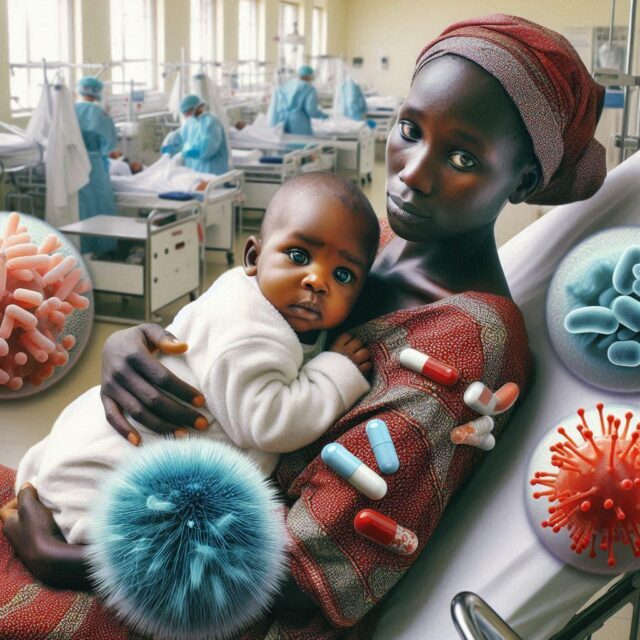
The project seeks to provide a comprehensive understanding of how climate change influences drug-resistant bacterial dynamics and impacts maternal and neonatal health
This study investigates the link between climate variations and the dynamics of antibiotic-resistant bacteria (ARB) in maternity wards in Burkina Faso and Cameroon. Focusing on antibiotic-resistant pathogens such as Extended-Spectrum Beta-Lactamase (ESBL)-producing Escherichia coli, Klebsiella pneumoniae, and methicillin-resistant Staphylococcus aureus (MRSA), the research aims to mitigate their adverse effects on maternal and neonatal health.
Through comprehensive sampling, whole-genome sequencing, and analysis of environmental factors such as temperature, humidity and airflow, the study will develop advanced models to predict future ARB dynamics under various climate scenarios. These predictions will inform targeted interventions, including enhanced hygiene practices, antibiotic stewardship, and environmental adjustments, in collaboration with healthcare professionals and local communities.
The project seeks to provide a comprehensive understanding of how climate change influences drug-resistant bacterial dynamics and impacts maternal and neonatal health, ultimately leading to effective interventions and evidence-based recommendations for broader implementation. The initiative is led by Prof. Blaise Bougnom (Cameroon) as Principal Investigator and Prof. Assèta Kagambèga (Burkina Faso) as Co-Principal Investigator. Funded by the Science for Africa Foundation (SFA), the project is scheduled to run from January 2025 to January 2027.






